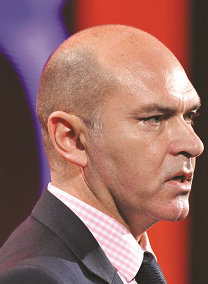News / NHS Improvement remains upbeat on provider finances

A separate report on the Q2 figures, which will be tabled at the next NHS Improvement board meeting, said 95% of trusts had accepted their control totals – 13 more than at Q1. After six months, 74% of these providers are delivering or over-achieving their control totals, while 81% forecast they will do so by year-end.
Providers forecast an aggregate year-end deficit of £669m, which is £89m worse than planned. However, NHS Improvement estimated the deficit could be reduced to £580m, if providers meet their savings targets in full over the remaining six months of the year.
The number of trusts reporting a deficit at month six was 142, 11 fewer than in the first quarter and 40 fewer than the same point in 2015/16. Trusts made savings totalling £1.2bn and estimate they are on course to reduce agency staff costs by £900m this financial year. The CIP savings were £92m short of plan, largely due to sustained demand pressures and recruitment difficulties, which were in part offset by providers outperforming on their planned income generation schemes.
There was more work to be done, particularly on curbing agency spending. NHS Improvement said some trusts and specialties, including radiography, were not doing enough and it would launch a further initiative to support them to achieve a consistent rate of savings and to eliminate unnecessary spending on temporary staff.
Mr Mackey (pictured) said: ‘No-one should underestimate the challenge of turning around a very difficult financial position for the NHS. But, thanks to a phenomenal effort by staff across the NHS, we’re one-nil up at half time.'
‘We can’t allow ourselves to be complacent. We know that we’ve got a lot of hard work still to do, and we’ll need each and every person within the NHS to play their part. We owe it to the people who use and fund our services to provide the best quality care possible within budget.’
NHS Improvement said the positive performance came despite an increase in demand and a 35% increase in the bed days lost due to delayed transfers of care compared with the same period in 2015/16.
HFMA policy director Paul Briddock said the financial results were a positive step. He added: ‘Hopefully this marks the start of a gradually improving picture for provider finances and is testament to the incredibly hard working staff in the NHS.
‘However, the battle to balance the NHS books is far from over – there is still an incredibly ambitious target for this year as a whole to achieve the forecast deficit for the year of £580m, a goal that will be difficult to meet given the relentless demand on the NHS. As reported in our most recent Financial temperature check, waiting times and agency costs are among the significant ongoing challenges.’
NHS Providers chief executive Chris Hopson said, with a lot of hard work, good progress had been made.
‘To be on track for a year end forecast of -£669m at this point is a significant achievement and a tribute to the huge effort that has been put in on the frontline. It also shows what NHS trusts can deliver when they are given a reasonable task and are properly supported.
‘The figures also show the challenge of restoring financial balance will grow in the second half of the year. Significant risk remains, as NHS trusts will have to increase their rate of savings in the third and fourth quarters to enable the sector to meet the target year-end position of a £580m deficit.’
Related content
The Institute’s annual costing conference provides the NHS with the latest developments and guidance in NHS costing.
The value masterclass shares examples of organisations and systems that have pursued a value-driven approach and the results they have achieved.